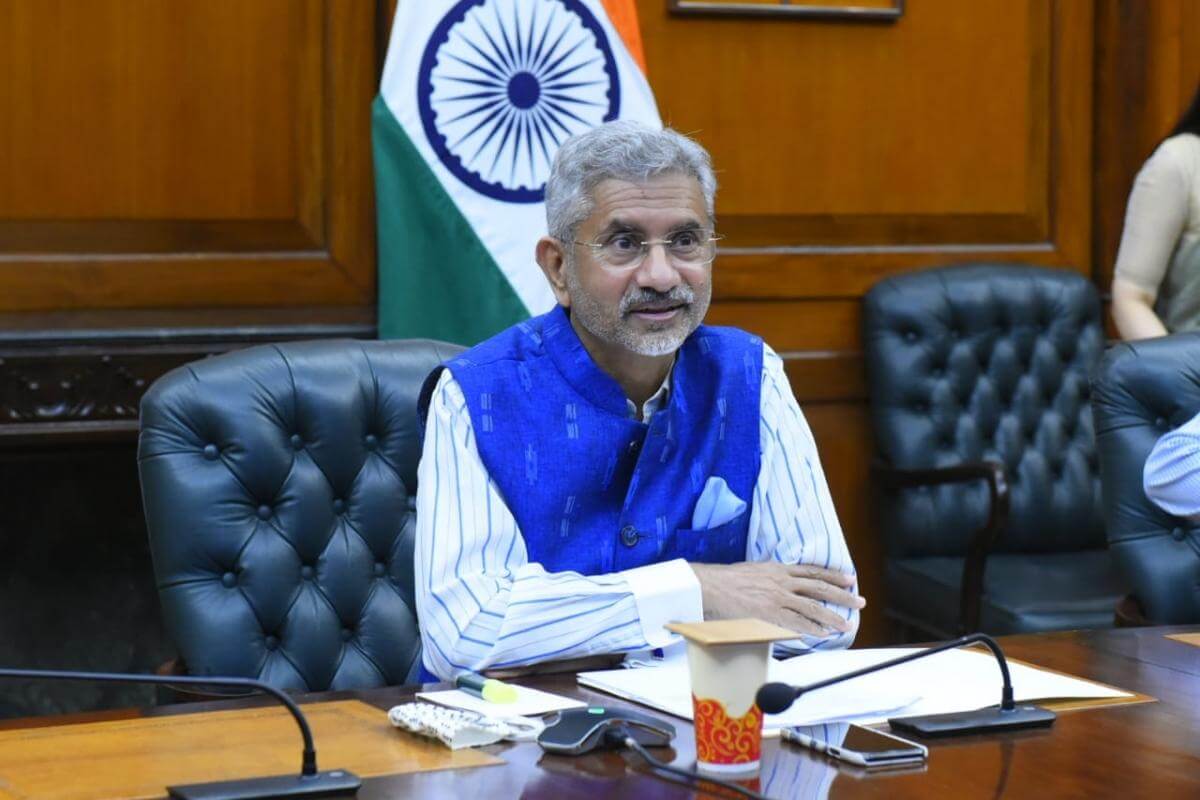Indian External Affairs Minister S. Jaishankar will not be attending a Canada-led foreign ministers discussion of the Ministerial Co-ordination Group on COVID-19 (MCGC), which was scheduled for December 7. India first joined the MCGC during its 11th meeting in November, a move that was celebrated by Canada’s foreign minister Francois-Phillipe Champagne who saw India as a crucial player in meeting the global demand for medicines and vaccinations. The MCGC was first established on March 15 and has seen the participation of the United Kingdom, Italy, France, Germany, Japan, South Korea, Indonesia, South Africa, Morocco, Brazil, Peru, and Australia.
While the Indian side has said that its decision to skip the meet is a consequence of “scheduling issues,” it is difficult to ignore the ongoing diplomatic tiff between the two countries. Recently, Canadian Prime Minister Justin Trudeau issued a statement on the occasion of Gurupurab, wherein he said, “I would be remiss if I didn’t start by recognising the news coming from India about the protest by farmers. The situation is concerning. We are all very worried about family and friends. We know that’s a reality for many of you. Let me remind you, Canada will always be there to defend the rights of peaceful protesters. We believe in the process of dialogue. We’ve reached out through multiple means to the Indian authorities to highlight our concerns. This is a moment for all of us to pull together.” India responded harshly to the remarks, calling them “ill-informed”.
Furthermore, on Friday, India summoned the Canadian ambassador to formally register a complaint against Prime Minister Justin Trudeau’s remarks supporting the ongoing farmer protests in the country, saying that such actions could severely damage ties between the nations. New Delhi informed the Canadian envoy that the “comments by the Canadian Prime Minister, some Cabinet Ministers and Members of Parliament on issues relating to Indian farmers constitute an unacceptable interference in our internal affairs,” according to a statement issued on Friday by India’s Ministry of External Affairs (MEA). Following this harsh response from India, Justin Trudeau attempted to soften his stance during a press meet wherein he applauded India’s efforts towards “de-escalation and dialogue.”
Several commentators have accused Trudeau of using the ongoing protests as a political tool. 18 out of 338 seats in the current House of Commons are occupied by Sikh Members of Parliament. Furthermore, Canada also has a significant “Jatt” population, which is also the community that is leading the ongoing protests. This particularly highlights Trudeau’s hypocrisy, given that Canada has historically stood against India’s agricultural subsidies. Canada has consistently opposed India on agricultural issues at the World Trade Organization (WTO), where New Delhi has sought to defend its agricultural programmes like the minimum support price (MSP) for staple crops such as rice, wheat, and pulses. In fact, the recently introduced reforms to India’s policy would satiate the objections raised by Canada, as well as the United States and the European Union.
The current protests against the agricultural reform bills in India have been supported by several international actors. Recently, a group of 36 British Members of Parliament wrote to Foreign Secretary Dominic Raab in support of the farmers’ right to protest. Urging Raab to discuss the issue with Jaishankar, the letter read, “This is a joint letter calling for representation to be made by yourself to your Indian counterpart about the impact on British Sikhs and Punjabis, with longstanding links to land and farming in India.”
Moreover, Stephane Dujarric, the spokesperson for the United Nations Secretary-General said, “As to the question of India, what I would say to you is that what I’ve said to others when raising these issues is that people have the right to demonstrate peacefully, and authorities need to let them do so.”
The agricultural reform bills in question—The Farmers’ Produce Trade And Commerce (Promotion And Facilitation) Bill, The Farmers (Empowerment and Protection) Agreement on Price Assurance and Farm Services Bill, and The Essential Commodities (Amendment) Bill—have been criticised for being too liberalized and for assuming that the current structure is devoid of private entities. Farmers fear that changes to the crucial minimum support price clause, doubled with the ease of business for corporate entities, will complicate their lives as they already struggle to sell goods. Further, the laws have been slammed for being opaque and providing no redressal mechanisms or sureties to farmers, with the government essentially stepping back from its role as a guarantor in a free market system.
India to Skip Canada-Led Foreign Ministers Meet on COVID-19 Strategy
Following Canadian Prime Minister Justin Trudeau’s comments in support of the ongoing farmers’ protests, India has decided to skip the meeting on a common COVID-19 strategy organised by Canada.
December 7, 2020

SOURCE: DOORDARSHAN NEWS
